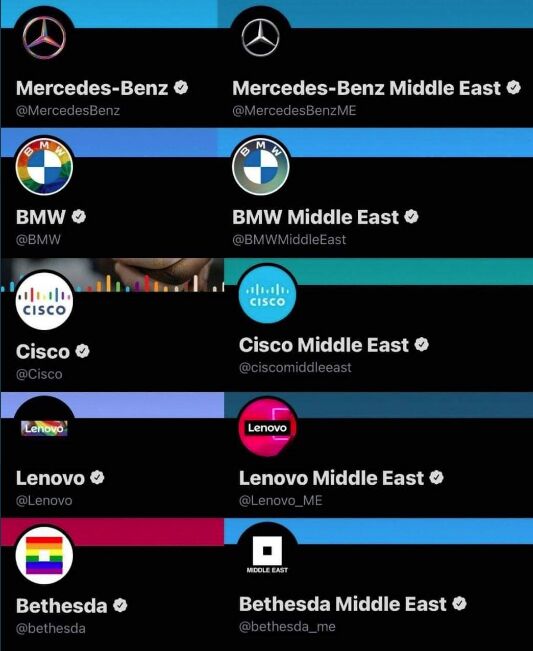Imagine yourself in any major supermarket. One can get lost in multiple aisles of single-use plastic bottles filled with soap, gel, wash, shampoo, and conditioner for your body, face, hands, privates, and hair. The cosmetic and personal care section occupies another few aisles with attractively packaged soon-to-be landfill waste. More soaps for laundry and dishes border rows of household cleaning products, air and fabric fresheners.
Toothpaste and brightly colored plastic toothbrushes have their own aisle. A few years ago one of the FMCG multinationals released a bamboo toothbrush in a flash of self-congratulatory marketing hype. I’ve never seen one in a store and that technology has been available for decades. A replaceable head on a reusable toothbrush handle also seems entirely plausible, but there are none that I know of except electric ones.
The food department devotes at least one aisle to a mix of sugary soda, “sport drinks,” and bottled water from faraway sources in Fiji, Norway, and France — all single-use bottles. Another aisle or two are reserved for snacks, mostly nutrient-deficient, ultra-processed, and wrapped in more throwaway layers of plastic and cardboard. The frozen section is wasteland of mostly low quality, edible food-like substances in disposable containers within disposable boxes.
Beef is some of the only real food in the entire store yet the push to replace it with bugs grows louder every day. While there are always potential improvements to the beef industry — humane treatment of the animals, feeding them mostly grass, cutting antibiotics and hormones, reconsidering hyper-centralization of feed lots & processing — the crowing about cow farts and the environment seems quaint when one considers the garbage that occupies most of the shelf space in supermarkets.
Outside of the supermarket, activities and products like bulk mailing (junk mail), car accessories e.g. “car eyelashes“, wall-to-wall carpet, plastic lawn furniture, manicures, golf, sparkly phone covers, and the entire luxury market all look like energy consumers, waste producers, and land wasters. (In a nod to activism, I’ll ignore how free-ish market economies work and pretend anything I personally deem dispensable is fair game without concern for economic consequences.)
So why target the food supply, if not as a population control mechanism, when there’s so much production & distribution of “nonessential” stuff? The World Economic Forum (WEF) is at the top of the food chain for the elitist/activist class and have their hands in just about every power grab one can imagine. They’re the folks behind the creepy Great Reset and its Build Back Better slogan.
It doesn’t take expert sleuthing skills to draw connections between the WEF and Davos crowd, BLM’s co-founders (Alicia Garza has a seat somewhere in the WEF structure), corporate leaders, and heads of state. They all pal around together for embarrassing photo ops and staged panel discussions, and they populate the WEF’s countless board and committee membership profile pages. I just learned there’s a book coming out that highlights these connections among other aspects of corporatized woke activism.
One needn’t be conspiratorial or even draw any conclusions to simply observe connective tissue between individuals and organizations, and corporate, social, or political (but I repeat myself) agendas that leave basic, unanswered questions beneath a veneer of marketing slogans. Cursory examination exposes their lack of substance. That’s not being racist or phobic or someone who only says “no,” (a constant fallback position by people who use rhetorical tactics in place of substantive debate) it’s being practical.
A basic question about making beef less available/more expensive is: who will be most impacted? You know who. Another is why target food vs. the luxury market when the latter serves only status & envy games instead of basic human nutritional needs? If we’re going manipulate markets on moral grounds, surely that dead-cow LV handbag is among the first to go, right?
Woke goals are much bigger than beef, and the internet-era for all its downsides makes hiding connections impossible. Here are a few more private & public sector trends that leave obvious, unaddressed questions. All are visibly important topics at the WEF, Davos, in private sector enterprises, and government & public sector institutions.
Digital Transformation is more than 20 years on, measured in $ billions annually, and continues to fail at a rate of ~70% by all accounts. It shares familiar themes and slogans with DE&I: stakeholder buy-in, the work is never done, getting out of comfort zones. It looks more like a mostly natural transfer of wealth from old to new economy but it’s wrapped in cult-like storytelling about innovation, efficiencies, and “customer experience.” Very little so-called transformation seems to reach customers beyond really top-notch package tracking from e-commerce giants. There are other positives but the annual spend doesn’t deliver anything close to its promise. What’s going on?
Diversity & Inclusion by its most recent measure (2018) is an $8 billion industry. As of this month, $37 billion has been allocated to ‘racial equity’ by corporations and the diversity industry is booming. How do we reconcile that level of spending on identity-hustling for private & public sector employees who have already attained a great deal of success vs. rampant homelessness, drug addiction, and failing schools for poor Americans across the racial spectrum?
Pride has been hi-jacked by corporate marketers and governments to an embarrassing degree, and frankly, I’m unsure why at least some segment of this population isn’t rip-roaring mad. How is it not seen as cultural appropriation when every corporate entity rainbows their logo for the PR opportunity? And why is it generally accepted that “rainbow-washing” doesn’t happen in countries whose culture won’t tolerate it?

Critical Race Theory, a once obscure academic exercise, is a hot topic in public education and government. Proponents, under increasing scrutiny, seem unable to agree on a definition or explanation perhaps by design. Opponents are baffled by direct but awkward denials of foundational adaptations that draw on Marxism and other abandoned philosophies. It’s at once “just an idea,” “not being taught in schools,” and “only racists are afraid of teaching real American history.” Contradictory, no?
Climate panic was in overdrive before a near-seamless shift to race panic in 2020, and “climate equity” just emerged as a clumsy hybrid. (Are these all the same activists bouncing between causes as news cycles shift?) Is it only me who sees limitless opportunity for a voluntarily shift toward less packaging and fewer idiotic ideas like liquid soap laced with plastic micro-beads that pass through wastewater treatment systems and into rivers & oceans? Can’t solid bar soaps be packaged in paper/light cardboard instead of plastic? How about streamlining personal care product lines “to literally save the planet” instead of filling the retail pipeline with endlessly repackaged variants of the same product?
There are so many more unexplored questions about so many more common-sense opportunities to reduce resource consumption and waste. Beef is clearly a diversion.
Always-on information overload with a maximum level of emotional manipulation seems to be the opium of the masses, a few generations late to the phrase. Eat the bugs and don’t ask questions if a herd mentality suits you. Leaders are wise to ask.

Thomas Irre is the founder of HK5, LLC, Practical Business Technology and Mental Self-Defense for leaders & teams.